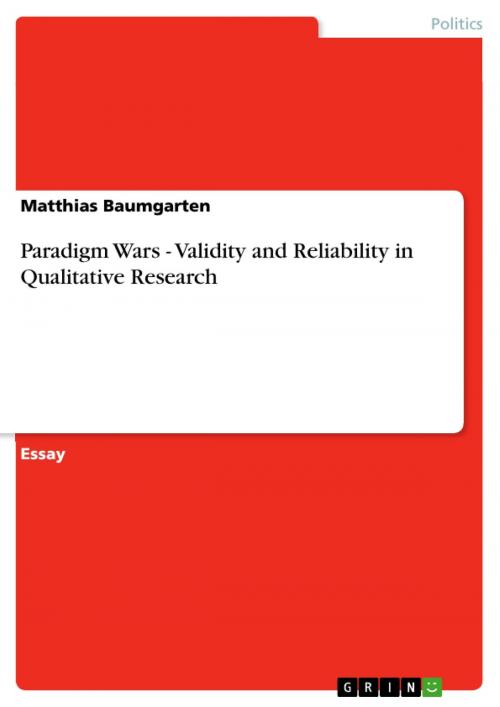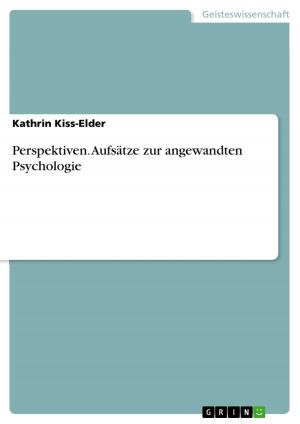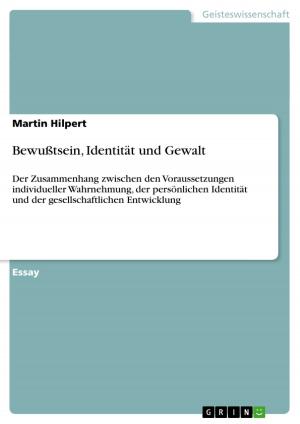Paradigm Wars - Validity and Reliability in Qualitative Research
Nonfiction, Social & Cultural Studies, Political Science, Politics, History & Theory| Author: | Matthias Baumgarten | ISBN: | 9783656113584 |
| Publisher: | GRIN Verlag | Publication: | January 30, 2012 |
| Imprint: | GRIN Verlag | Language: | English |
| Author: | Matthias Baumgarten |
| ISBN: | 9783656113584 |
| Publisher: | GRIN Verlag |
| Publication: | January 30, 2012 |
| Imprint: | GRIN Verlag |
| Language: | English |
Essay from the year 2010 in the subject Politics - Methods, Research, grade: 1,3 (77%), University of Warwick (Politics and International Studies), course: Qualitative Research Methods, language: English, abstract: Validity and reliability as quality indicators have an uneasy standing in qualitative research and are subject to numerous debates. Researchers from different paradigmatic backgrounds expressed a variety of views, the extremes ranging from a complete denial of the possibility of valid and reliable qualitative research on one hand to the rejection of validity and reliability as meaningful quality indicators on the other. The following essay acknowledges the diverging assumptions underlying the different paradigms associated with quantitative and qualitative research. However, it denies that validity and reliability are inherently connected to predetermined ontological or epistemological assumptions and argues for their general use as quality indicators. To clarify this claim, a selection of different paradigms and the development of alternative quality indicators within them are highlighted. Since the usefulness of this multitude of indicators is questionable, reconciliation is attempted by consolidating them. The concepts of 'core validity' and 'core reliability', which can be specified according to the researcher's paradigm, are introduced for this task. These concepts underline the relevance and applicability of validity and reliability as quality indicators in qualitative research. Furthermore, qualitative research has developed strategies and methods, which enable the researcher to address negative influences on validity and reliability and achieve high degrees of both.
Essay from the year 2010 in the subject Politics - Methods, Research, grade: 1,3 (77%), University of Warwick (Politics and International Studies), course: Qualitative Research Methods, language: English, abstract: Validity and reliability as quality indicators have an uneasy standing in qualitative research and are subject to numerous debates. Researchers from different paradigmatic backgrounds expressed a variety of views, the extremes ranging from a complete denial of the possibility of valid and reliable qualitative research on one hand to the rejection of validity and reliability as meaningful quality indicators on the other. The following essay acknowledges the diverging assumptions underlying the different paradigms associated with quantitative and qualitative research. However, it denies that validity and reliability are inherently connected to predetermined ontological or epistemological assumptions and argues for their general use as quality indicators. To clarify this claim, a selection of different paradigms and the development of alternative quality indicators within them are highlighted. Since the usefulness of this multitude of indicators is questionable, reconciliation is attempted by consolidating them. The concepts of 'core validity' and 'core reliability', which can be specified according to the researcher's paradigm, are introduced for this task. These concepts underline the relevance and applicability of validity and reliability as quality indicators in qualitative research. Furthermore, qualitative research has developed strategies and methods, which enable the researcher to address negative influences on validity and reliability and achieve high degrees of both.















